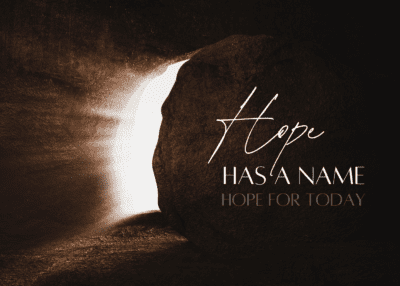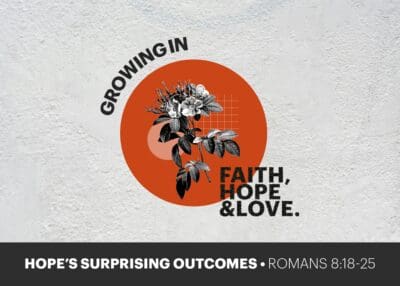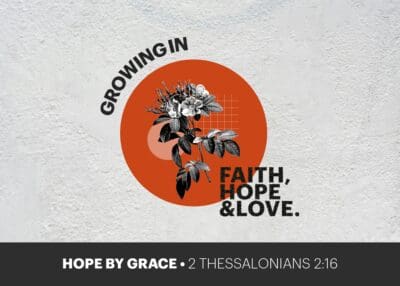The heavens will disappear with a roar; the elements will be destroyed by fire, and the earth and everything in it will be laid bare (2 Peter 3:10; NIV).
As you look at our world today, it’s obvious that something is terribly wrong with this planet we call “Earth.” 60,000 dead in China, and the Chinese government said yesterday that the earthquake toll could rise to 80,000.[1] 78,000 dead, 56,000 missing, and 2.4 million people whose lives were devastated from the cyclone in Myanmar.[2]
I pulled up on the Internet a list of natural disasters.[3] It runs to 21 pages, with 30-40 disasters on each page: Earthquakes, volcanoes, heat waves, hail, storms, tornados, cyclones, hurricanes, typhoons, floods, landslides, wildfires, blizzards, famines, diseases.
Each one a story of pain, tragedy, and lost lives—tens, hundreds, thousands, even millions:
1,800 dead in Hurricane Katrina—2005.
283,100 dead in the tsunami off the Indian Ocean—2004.[4]
2-4 million estimated dead in China floods—1931.
What’s wrong with this world?
You have to ask the question, “Why?” Why in a world so beautiful, with all the marks of order and design, a world with an environment perfectly adapted to support an abundance of life—birds, animals, fish, insects, plants, crops, people—why in this world would there be every kind of disaster in every continent, in every century?
What is wrong with this world? That’s the question. Fox news has an answer on their website[5]:
The Myanmar cyclone, the earthquake off the coast of Japan, the Chilean volcano—Has Earth gone bonkers? Not at all. This level of natural activity is normal for Earth, scientists say. “Mother Nature is just reminding us that she is in charge.” [6]
That also means the recent Midwestern quake (centered in Illinois) and tremors near Reno, Nevada, though unnerving and frightening to locals, were just another day for Planet Earth.[7]
What’s wrong with this world? Fox News says, “Nothing. It’s perfectly normal. Mother Nature is reminding us she is in charge.” They report. You decide. I hope you’ll decide something very different today.
Under the curse of God
What is wrong with the world? The Bible gives us an answer that I invite you to consider today: The world is under a curse that came about through human sin and rebellion against God. Adam rebelled against God, and humanity continues in that rebellion.
No rebellion against God can ultimately stand. The Scriptures describe the Lord as the great warrior (Ex. 15:3, Isa. 42:13), and he will destroy all his enemies. The great rebellion against God began in heaven long before Adam was created. When Adam launched the human phase of the rebellion, God confronted the devil and his new allies, the man and the woman.
God said to Satan, “Cursed are you!” (Gen. 3:14). The word ‘curse’ means ‘destroy’ or ‘bring to nothing.’ God will not allow Satan’s rebellion to stand. He is cursed. He will be overthrown and utterly defeated. All his works will be destroyed.
Then God turned to Adam, who had joined the rebellion: “Cursed is the ground… because of you” (3:17). That means two things: First, the earth will be utterly destroyed. “Cursed is the ground…” The planet will be destroyed. God will bring life on earth to nothing. God will not allow the human rebellion to stand. Man will be overthrown. All his works will be utterly destroyed.
Second, God makes a wonderful way of hope for human beings. He makes a way for us to be part of his plan for the cosmos, after he has destroyed this fallen world. Judgment and mercy are mixed together here. If God had said to Adam, “Cursed are you…” that would have been the end of the human race. But God said, “Cursed is the ground because of you.” That opens the door of hope.
“Cursed is the planet because of you.” That is the story that is traced throughout the Bible. The gospel is about much more than your personal salvation. It is about the global future. It is about the future of the planet. What will happen to the world—nations, kings, presidents, science, and technology? What will happen to humanity?
There is massive concern these days for the future of planet earth. Globalization is one of the great themes of our time. We live in a global village—what happens to one affects all. What is going to happen to this global village? The younger generation is motivated by the question: How can we save the planet?
This World is Completely Hopeless
But the day of the Lord will come like a thief. The heavens will disappear with a roar; the elements will be destroyed by fire, and the earth and everything in it will be laid bare (2 Peter 3:10).
This is America. We are an optimistic people and we like to be positive. Good communication is positive. So why not turn this round and say, “Jesus Christ is the hope of the world”?
I can’t do that, because the Bible never says Jesus is the hope of the world. Jesus Christ is the hope of all who turn to him in repentance and faith, but the Bible never says Jesus is the hope of the world. If you have great hope for this world, you didn’t get it from the Bible.
God will keep his promise
The world is under the curse of sin through our rebellion against God. Satan will be utterly destroyed. The earth will be utterly destroyed, and Peter tells us that God will keep his promise.
There’s no way of avoiding this. Peter does not say, “Unless you repent, the earth will be laid bare.” He does not say, “Unless the people of God pray,” or “Unless America turns back to God,” or “Unless there is a great revival, the elements will be destroyed by fire.”
Peter says, “This is what is going to happen. It’s unconditional. There is nothing you or anyone else can do to stop it or change it. The earth is under the curse of sin, and God will keep his promise. Cursed is the ground!” God wants you to know that this destruction is absolutely certain.
Does this mean Christians can be careless about the environment? Does this mean it doesn’t matter, since it’s going to burn up anyway? Absolutely not! Thank God for a younger generation that sees we need to care for this world.
Think of it this way: We care for the planet like we care for the dying. We care for the dying, not because we think we can save them, but because we love them and we value them. That’s how we care for the planet.
Everything will be destroyed
Since everything will be destroyed in this way, what kind of people ought you to be? You ought to live holy and godly lives (2 Peter 3:11).
It is revealed to you that at some point in your life your home will be destroyed by fire. Everything in it will be laid bare. You don’t know where this will happen. You don’t know when it will happen. What would you do?
Your home will be destroyed by fire, so moving won’t help. You don’t know if it will be your starter home, your family home, or your retirement home. All you know is that at some point in your lifetime, your home will be destroyed by fire, and everything in it will be laid bare. One day it will happen.
I know what I would do: I’d move all of the things that I value to another place. I’d leave my computer at the church, so that if it happened tonight I wouldn’t lose my files. I’d keep our family photographs somewhere else, so that I could enjoy them for a longer time. I’d live much more simply. I’d only keep what I absolutely need.
That’s the point of our Lord’s teaching: “Do not store up for yourselves treasures on earth, where moth and rust destroy, and where thieves break in and steal. But store up for yourselves treasures in heaven, where moth and rust do not destroy, and where thieves do not break in and steal. For where your treasure is, there your heart will be also” (Matt. 6:19-21). If everything will be destroyed, then wisdom says, “You can’t keep anything here!”
A God-centered future
Since everything will be destroyed in this way… you ought to live holy and godly lives as you look forward to the day of God and speed its coming (2 Peter 3:12).
Live a radically God-centered life. Knowing what will happen to this world will give you a different attitude towards the future. What is your attitude toward the future? If you had to use one word to describe it, what would it be?
Why would Christians look forward to this day? Does this mean Christians rejoice in the thought of the earth’s destruction? Surely not! Peter says that believers look forward to the ‘day of God’ (v12). Scholars debate whether the ‘day of God’ (v12) is the same as ‘the Day of the Lord’ (v10). John MacArthur suggests they are different:
Some commentators equate the ‘day of God’ with ‘the day of the Lord,’ but they are not synonymous expressions. The ‘day of God’ refers to the eternal state when God will have permanently subdued all of his enemies.[8]
That makes sense. God takes no pleasure in the death of the wicked, and we find no pleasure in judgment. But Christ’s people have a different destiny. We find ourselves praying, “Lord Jesus, come quickly.” We long for his appearing.
We live in anticipation of the day when he will take us out of this world—the day when we, who already share in his death and resurrection will also share in his ascension. We look forward to the day when he will bring us to the Father and say, “Here I am and the children you have given me” (Heb. 2:13).
Gathering in his children
You look forward to the day of God and speed its coming (v12).
God holds back the judgment until all his children are gathered in (v9). And God gathers his children in through the gospel that has been trusted to us. That’s why we give of ourselves—our time, our money, our talents and our energy—to the work of the gospel. Christ will come when all his children are gathered. And we are involved in that gathering through the gospel.
This world is completely hopeless: If you go on living for this world, you will face a total loss. That is inevitable, unavoidable, and it will be eternal.
Do you see what we need to be saved from? If the problem was ignorance, education would save us. If the problem was bad behavior, morality would save us. But if the problem is the destruction of the heavens and the earth with fire, how will morality save you?
Only God can save you. And saving you will mean pulling you out from this world. This world is completely hopeless. Jesus Christ offers glorious hope.
Jesus Christ offers glorious hope
That day will bring about the destruction of the heavens by fire, and the elements will melt in the heat. But in keeping with his promise we are looking forward to a new heaven and a new earth, the home of righteousness (2 Peter 3:12-13).
This is a great theme of the New Testament: “Christ in you, the hope of glory…” (Col. 1:27). “If anyone is in Christ, he is a new creation…” (2 Cor. 5:17).
Let’s put these things together: The heavens will disappear with a roar. The earth and everything in it will be laid bare. But, in keeping with God’s promise, we are looking forward to a new heaven and a new earth. Are we talking about a completely new creation ‘ex nihilo’ (out of nothing), or is this a total renovation of planet earth?
Some months ago, Karen and I had lunch with Dr. Willem Van Gemeren and his wife Yvonna in our home. Willem teaches at Trinity International University. And he had been leading one of our classes here on the new heaven and the new earth, so we got onto talking about it over lunch.
He said, “One of the things I would like to do in the new earth is to climb Mount Everest. It’s something I would never have the ability or the opportunity to do in this life, but I think I’d like to do that then.”
That makes it pretty clear that we are talking about this planet. And there are good reasons for believing that this is so. Paul says: “The creation itself will be liberated from its bondage to decay and brought into the glorious freedom of the children of God” (Rom. 8:21).
He is talking about this creation being liberated—not another one. Sin’s destroying work has extended to the whole planet. Christ’s saving work will extend to the whole planet also.
Listen to the words of theologian, Anthony Hoekema:
It is these forests, these fields, these cities, these streets, these people that will be the scene of redemption. At the present they are battlefields, full of the strife and sorrow of the not yet accomplished consummation; then they will be fields of victory, fields of harvest, where out of seed that was sown with tears, the everlasting sheaves will be reaped and brought home.[9]
Life in the home of righteousness
There will be a new heaven and a new earth, and it will be the home of righteousness (2 Peter 3:13).
There will be no sin, no temptation, no evil. So there will be no fear, no sorrow, no depression. No suffering, no death, no loss, no tears. No fractured friendships, no hidden agendas, no painful revelations, no heart-rending goodbyes.
God will wipe all tears from the eyes of his people. The old order of things will pass away, and the One who sits on the throne will make everything new (Rev. 21:4, 5).
Here’s the question: How could you live in the home of righteousness? If there will be no sin there, how can you be there? If there will be no fear there, how can you be there? If there will be no fractured friendships there, how can you be there?
If you are to live in the home of righteousness, you have to be righteous and you have to love righteousness. There’s only one way that can happen. If you are clothed in the righteousness of Christ, you will be righteous. If you are filled with the Spirit of Christ you will love righteousness. And that is what God offers to you in the gospel.
There is a way for man to rise
to that sublime abode.
An offering and a sacrifice.
A Holy Spirit’s energies
an advocate with God.[10]
You can’t get enter the home of righteousness through your morality. You have to become a new creation in Christ. Only God can make you a new person.
That means God has to save you. He has to make you righteous. He has to fill you with a new love for righteousness. He will do that for you if you will humble yourself today, repent of your sin and rebellion against God, and trust in God’s Son Jesus Christ. He’s the One who gave himself on the Cross for you.
Get ready to look him in the eye
So then, dear friends, since you are looking forward to this, make every effort to be found spotless, blameless and at peace with him (2 Peter 3:14).
Make every effort to be at peace with him! This is the one thing that really matters today. Are you at peace with him? Are you ready to meet him? If Christ came to gather his people today, could you honestly say that you are ready to look him in the eye?
There’s a poem I heard years ago written by a man known as Woodbine Willie.[11] Willie was a padre to British soldiers in the trenches during the First World War. It’s almost impossible to imagine the horrors of what that must have been like.
One night Willie had a dream, and he saw a vision of Christ. He woke up terrified at the thought of standing before the Lord. It led to his marvelous conversion. He wrote these words:
There ain’t no books and there ain’t no thrones
it’s him you’ve got to see,
it’s him, just him who is the Judge
of blokes like you and me.
And boys I’d sooner shrivel up in the flames of a burning hell
than stand and look into these eyes
and hear his voice say, ‘Well…?’
Friend, the thing to worry about is not that the earth will melt with fire. Here’s what you should be concerned about: You will stand before the Lord Jesus Christ. Make every effort to be at peace with him! John puts it this way:
We shall see him as he is! Everyone who has this hope in him purifies himself even as [Christ] is pure (1 John 3:2-3).
Is that what you are doing?
[1] The Guardian, May 24th 2008
[2] International federation of Red Cross and Red Crescent Societies, May 20th 2008
[3] https://en.wikipedia.org/wiki/List_of_natural_disasters_by_death_toll
[4] That’s the official figure, though it may be as high as 350,000)
[5] Robin Lloyd, Scientist: Recent Natural Disasters Perfectly Normal, Friday, May 9, 2008.
[6] Bill Patzert, climatologist at NASA’s Jet Propulsion Laboratory, Pasadena, CA
[7] https://www.foxnews.com/story/0,2933,354692,00.html?sPage=fnc/specialsections/naturaldisaster
[8] John MacArthur, The MacArthur New Testament Commentary: 2 Peter & Jude, p. 129.
[9] Anthony Hoekema, The Bible and the Future (Grand Rapids: Eerdmans Publishing, 1994), p.281; citing Edward, Thurneysen.
[10] From the hymn Eternal Light by Thomas Binney (1798 -1874).
[11] https://www.mun.ca/rels/restmov/texts/dasc/TUB.HTM






